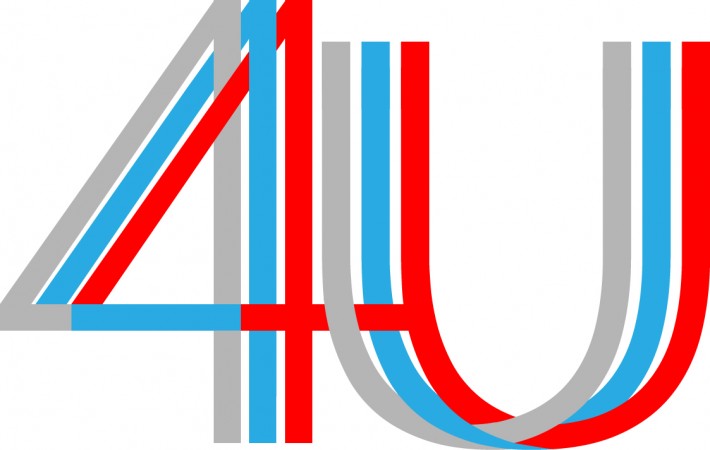As the amount of digital material generated by universities increases every year, what can be done to preserve them for the future? Linda Ligios and Karen Colbron, King's College London, are looking for solutions with the Presto4U project, www.prestocentre.org/4u
About the authors:
 Linda Ligios is Presto4U Community of Practice Coordinator (Learning and Teaching Repositories) at King's College London. Previously she worked within the British Library Sound Archive for an Arts Council-funded oral history project and cataloguing sound recordings. She has a background in publishing and radio production at the BBC where she worked managing the international print and digital licences for BBC Magazines followed by 2 years working in BBC local radio. She also worked closely with the Digital Asset Management team to implement the captioning, rights management and delivery of BBC digital content to an international community.
Linda Ligios is Presto4U Community of Practice Coordinator (Learning and Teaching Repositories) at King's College London. Previously she worked within the British Library Sound Archive for an Arts Council-funded oral history project and cataloguing sound recordings. She has a background in publishing and radio production at the BBC where she worked managing the international print and digital licences for BBC Magazines followed by 2 years working in BBC local radio. She also worked closely with the Digital Asset Management team to implement the captioning, rights management and delivery of BBC digital content to an international community.
 Karen Colbron, Presto4U Knowledge Transfer and Sustainability Manager at King's College London, has an advanced degree in Library Science. She is responsible for the development of the Presto4U Standards Register, Software Tools Catalogue and Marketplace. Having recently served as Digital Archives Manager at WGBH Television in Boston, Karen has been involved in preservation workflows for both analogue to digital and born-digital audiovisual materials. Karen has over 25 years of production and project management experience, both nationally and internationally, and has been twice Emmy award-nominated for her work in archival research.
Karen Colbron, Presto4U Knowledge Transfer and Sustainability Manager at King's College London, has an advanced degree in Library Science. She is responsible for the development of the Presto4U Standards Register, Software Tools Catalogue and Marketplace. Having recently served as Digital Archives Manager at WGBH Television in Boston, Karen has been involved in preservation workflows for both analogue to digital and born-digital audiovisual materials. Karen has over 25 years of production and project management experience, both nationally and internationally, and has been twice Emmy award-nominated for her work in archival research.
The development of virtual learning technology and the accessibility of audiovisual media are rapidly changing higher education (HE) practice in response to an evolving student base that lives and communicates in a digital environment. Many universities are becoming producers of audiovisual material in the form of recorded lectures, video conferences, podcasts and bespoke videos created to enhance the distance-learning provision. The recent explosion of MOOCs[1] and the OER movement[2] have been main drivers for the production and access of audiovisual resources within this domain, resulting in the increase of born-digital content. If we think of the variety of subjects and courses where video proves an essential teaching and learning tool, it is fair to assume that the amount of digital material produced within higher education is likely to increase in the coming years, posing a threat to the value of resources if no action is taken to preserve them. The risk however is not only limited to born digital content and many institutions are familiar with the variety of analogue collections (VHS, Betacam etc.) scattered across different departments without appropriate storage conditions and in danger of physical deterioration. According to a survey conducted by the University of Innsbruck in 2012[3], the hours of content held at European HE institutions could run well into the millions, yet little information is available on the condition of collections making it more difficult to assess how urgent digitisation and preservation measures are needed. The reality is that digital preservation is still regarded with some scepticism because of the short shelf life of some educational materials. Content may be course or year-specific, or have privacy and other constraints limiting future re-use (e.g. medical videos), that will affect retention policies within institutions. Fortunately in the UK good practices are emerging and organisations like Jisc[4] and the Digital Preservation Coalition[5] have been at the forefront supporting HE institutions with advice and guidance on digital preservation.
Why we should preserve? Audiovisual materials are not cheap to produce, and reuse and sharing over time might be beneficial in an educational environment where funds are limited, but immediate accessibility is paramount to fulfil the needs of a growing student base that goes beyond the national borders.
Preservation over the long-term facilitates the reuse and repurposing of material and may avoid the constant duplication of efforts, saving time and money. It could be argued that not all materials are regarded as worth reusing or modifying for new purposes, particularly those with privacy or copyright issues involved, but that’s where teachers can play a key role in advising on the long-term educational value and their significance from a wider cultural perspective. Style of lessons, curricula and student base continually evolve and it is important to be able to measure and reflect upon those changes. The history of teaching methods, course content, and the methods by which content is delivered to students, forms a corpus of future research materials.
Another important aspect of preserving material is making sure that content can be found. A digital file has limited use without supported metadata. Documentation makes content searchable, discoverable and accessible, and it is in some ways the most challenging aspect of digital audiovisual preservation facing not only teaching and learning environments today. The challenges to adequately capture data for born-digital materials and to migrate legacy databases or paperwork for analogue materials is a huge issue in terms of infrastructure and support for these activities. This is even more important in higher education where capture of associated content and context are needed, especially for those engaging in distance learning.
Presto4U and the Community of Practice for Learning and Teaching Repositories Although good preservation practices are emerging in higher education, there are still limited funds and human resources available, as well as a lack of skilled practitioners. The focus is on immediate accessibility of materials rather than long-term preservation. At the same time there is still no common understanding of how preservation and access should be organised within universities, therefore sharing expertise and case studies between institutions can help others define their own strategies and help to inform technology providers of needs within this sector.
To support this process, Presto4U - a two-year project co-funded by the European Commission's Seventh Framework Programme - has identified nine different Communities of Practice in the field of audiovisual preservation, including Learning and Teaching Repositories[6].

The Presto4U logo represents a triple helix, better known as the triple-stranded DNA. In industrial policy, the term triple helix denotes the three-way relationship between government, industry and researchers. It stresses the interrelationship of the three actors involved in increasingly knowledge-based societies and the level playing field required between institutional partners. The project has stretched this image and projected it on the three stakeholder groups it addresses: AV media archives, researchers and industrial players.
Each Community of Practice is ‘steered’ by a Core expert group. These Core expert groups are supporting the process of knowledge creation and transfer through dialogue, feedback and the sharing of examples of the problems and challenges that their audiovisual collections face. Experts in the Learning and Teaching Repositories Core expert group consist of individuals within higher/further education institutions including Universities for distance-learning and other academic institutions with one or more audiovisual collection or acting as a producer of audiovisual content to support education. These individuals are involved in the acquisition, digital storage, management and re-use of audiovisual material for educational purposes, and are highly concerned with digital preservation. They are brought together by the Presto4U project to identify common problems and develop better practices in digital preservation. Participating institutions include the Open University Archive and Screen Archive South East at the University of Brighton (UK), University College Dublin (Ireland), Digital Repository of Ireland at the Royal Irish Academy (Ireland), Sapienza University of Rome (Italy), IUAV University of Venice (Italy), and the Spanish University for distance-learning UNED. These Core experts have been participating in online discussions to share expertise and contribute to the documentation of the most relevant digital preservation issues and needs of the community. The Core experts are also engaged with a broader group via newsletters and workshops and welcome questions in the public community space called PrestoCentre Answers[7].
Helping the audiovisual community The project started in January 2013 with the objective to identify and respond to the needs of varied communities involved in digital audiovisual preservation, taking into account different levels of knowledge and skills in relation to preservation workflows, tools and services. It aims to raise awareness and improve the adoption of emerging research and current practices in digital audiovisual preservation across Communities, and to communicate these needs to technology and service providers. The establishment of the Communities of Practice presents an opportunity to discover the common needs across all forms of institutions, as well as to discover the issues that are relevant to only one or two types of institutions. This information will hopefully foster dialogue among and across all the CoPs to create collaborative solutions to digital audiovisual preservation issues. For communities such as Teaching and Learning, Presto4U presents the opportunity to learn about more established digital workflows from other areas such as “TV, Radio and New Media Broadcasting” as well as the workflows and challenges of other CoPs such as “Research and Scientific Collections” or “Video Art, Museums and Galleries”. Core to the project is creating an environment where those involved in audiovisual preservation will not only engage with their own and other communities, but also find tools and services that respond to and fulfil their needs. So far Presto4U has published an online Standards Register and Tools Catalogue. The Standards Register[8] brings together standards related to digital audiovisual preservation, based on the standards currently employed within the Presto4U Communities of Practice, with further input from experts in audiovisual preservation. As with the Standards Register, the Tools Catalogue[9] aims to represent those tools that are of particular interest to digital audiovisual preservation activities. Presto4U is based on the idea of communities and the interactions between them, and the Standards Register and Tools Catalogue represent one arc of that philosophy. Both employ facets that tie them specifically to community use and community adoption. By reinforcing these links between communities, standards and tools, the project hopes to encourage further adoption and use of both tools and standards.
Linda Ligios and Karen Colbron